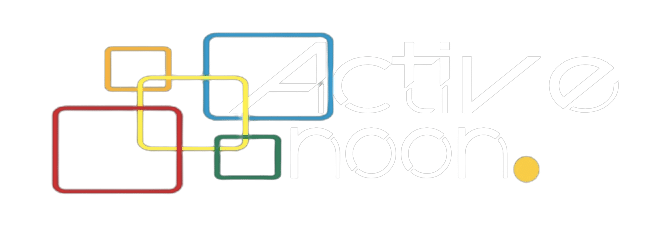In the ever-evolving landscape of search engine optimization (SEO), link building remains a crucial aspect of any successful digital marketing strategy. However, not all link-building tactics are created equal. In this definitive guide, we will explore the world of “White Hat” link building techniques that can genuinely boost your website’s authority, traffic, and rankings without violating search engine guidelines.
Understanding White Hat Link Building
What is White Hat Link Building?
White link building refers to the practice of acquiring backlinks to a website through legitimate and ethical means. These methods adhere to search engine guidelines and aim to provide valuable and relevant content to users. By focusing on White Hat strategies, website owners can establish a sustainable link profile that withstands search engine algorithm updates.
Importance of White Hat Link Building
White Hat link building plays a pivotal role in improving a website’s organic search rankings. By earning links from authoritative and relevant sources, websites can gain trust and credibility from search engines, leading to higher rankings and increased organic traffic.
Creating Link-Worthy Content
Crafting High-Quality Content
One of the fundamental principles of White Hat link building is creating exceptional content that naturally attracts backlinks. High-quality content provides value to users and encourages other websites to link back to it as a valuable resource.
Incorporating Visuals and Multimedia
Incorporating visual elements like images, videos, and infographics enhances the appeal of your content. Visuals make your content more shareable and increase the likelihood of receiving backlinks.
Leveraging Infographics for Link Building
Infographics are powerful tools for link building. Creating informative and visually appealing infographics can attract numerous backlinks when other websites use them as a reference.
Guest Blogging for Links
Identifying Relevant Guest Blogging Opportunities
Guest blogging involves writing content for other websites within your niche. Identifying authoritative blogs with a similar audience can lead to valuable backlinks and increased exposure.
Writing Engaging Guest Posts
Crafting engaging and insightful guest posts is crucial for successful link building. By providing valuable content to the host blog’s readers, you can build trust and authority.
Navigating the Outreach Process
Outreach is a vital aspect of guest blogging. Building relationships with blog owners and editors can increase your chances of securing guest blogging opportunities.
The Power of Influencer Marketing
Identifying the Right Influencers
Influencer marketing involves collaborating with individuals who have a significant following in your industry. Partnering with the right influencers can lead to organic backlinks and increased brand visibility.
Building Meaningful Relationships
Nurturing authentic relationships with influencers is crucial for long-term success. By establishing mutual trust, you can gain access to their audience and earn valuable backlinks.
Leveraging Influencer Networks
In addition to individual influencers, engaging with influencer networks can further amplify your content’s reach and attract more backlinks.
Broken Link Building
Understanding Broken Link Building
Broken link building involves finding broken links on other websites and offering your content as a replacement. This mutually beneficial approach can earn you valuable backlinks.
Finding Broken Link Opportunities
Using various tools, you can identify broken links on relevant websites and reach out to the site owners to suggest your content as a replacement.
Reaching Out to Webmasters
Contacting webmasters in a friendly and professional manner is essential for successful broken link building. By offering a solution to their broken link, you increase the likelihood of gaining a backlink.
Building Resource Pages
Creating Valuable Resource Content
Resource pages are collections of links to helpful content in a specific niche. By creating valuable resources, you increase the chances of getting featured on resource pages and gaining backlinks.
Reaching Out to Resource Page Curators
Identifying resource page curators and reaching out to them with your content can result in valuable backlinks.
Establishing Long-Term Resource Links
Maintaining updated and relevant content ensures that your link remains on the resource pages, providing an ongoing stream of referral traffic.
The Art of Social Media Sharing
Optimizing Content for Social Sharing
Making your content shareable on social media platforms increases its visibility and the likelihood of attracting backlinks.
Engaging with Your Social Media Community
Building an engaged social media community can lead to natural sharing of your content, driving more traffic and backlinks.
Using Social Media for Link Outreach
Social media is a valuable platform for reaching out to potential link partners and building relationships within your industry.
Earning Editorial Links
Crafting Newsworthy Content
Creating content with newsworthy elements can attract attention from journalists and media outlets, leading to valuable editorial backlinks.
Forging Relationships with Journalists
Building relationships with journalists and providing them with reliable information can increase the chances of getting mentioned in their articles.
Staying Relevant and Timely
Staying updated on industry trends and current events allows you to create content that is timely and relevant, increasing its chances of getting editorial coverage and backlinks.
Local Citations and Listings
The Importance of Local SEO
For businesses targeting local audiences, local citations and listings are crucial for improving online visibility and earning backlinks from local directories.
Claiming and Optimizing Local Listings
Claiming your business on various local directories and optimizing the listings with accurate information can enhance your chances of getting backlinks.
Getting Local Links from Partners
Building partnerships with other local businesses can lead to mutual backlinking opportunities and increased local authority.
Building Links through Outreach and Networking
Identifying Link Opportunities
Conducting thorough research helps identify potential link-building opportunities within your industry.
Reaching Out to Website Owners and Bloggers
Outreach is a skill that requires personalized and persuasive communication to convince website owners and bloggers to link back to your content.
Participating in Industry Events
Attending industry events provides networking opportunities, allowing you to connect with potential link partners and influencers.
Understanding Nofollow and Dofollow Links
Differentiating Nofollow and Dofollow Links
Understanding the difference between nofollow and dofollow links helps you strategize your link-building efforts more effectively.
The Value of Nofollow Links
Although nofollow links don’t pass direct SEO value, they can still drive valuable traffic to your website and contribute to your overall online presence.
Balancing Nofollow and Dofollow Links
A diverse link profile that includes both nofollow and dofollow links appears more natural to search engines and can positively impact your rankings.
Monitoring and Analyzing Your Backlinks
Utilizing SEO Tools for Link Analysis
Various SEO tools can help you monitor your backlinks, analyze their quality, and identify potential issues.
Identifying Toxic Backlinks
Identifying and disavowing toxic backlinks is essential for protecting your website from Google penalties.
Disavowing Unwanted Links
Using Google’s Disavow Tool, you can request search engines to ignore specific backlinks that may harm your site’s rankings.
Conclusion
White Hat link building remains an indispensable component of a successful SEO strategy. By creating valuable and relevant content, engaging in genuine outreach, and building authentic relationships, you can secure high-quality backlinks that enhance your website’s authority and visibility. Remember, the key to sustainable link building lies in providing value to users and adhering to search engine guidelines.



















Leave a Reply